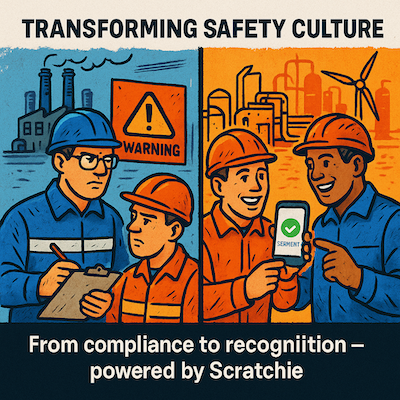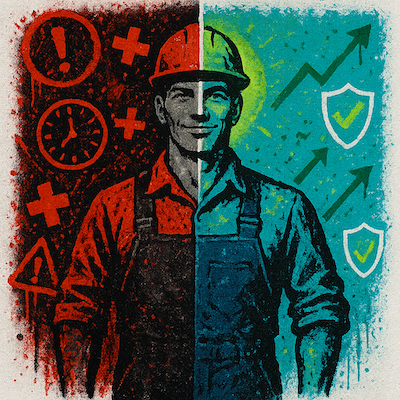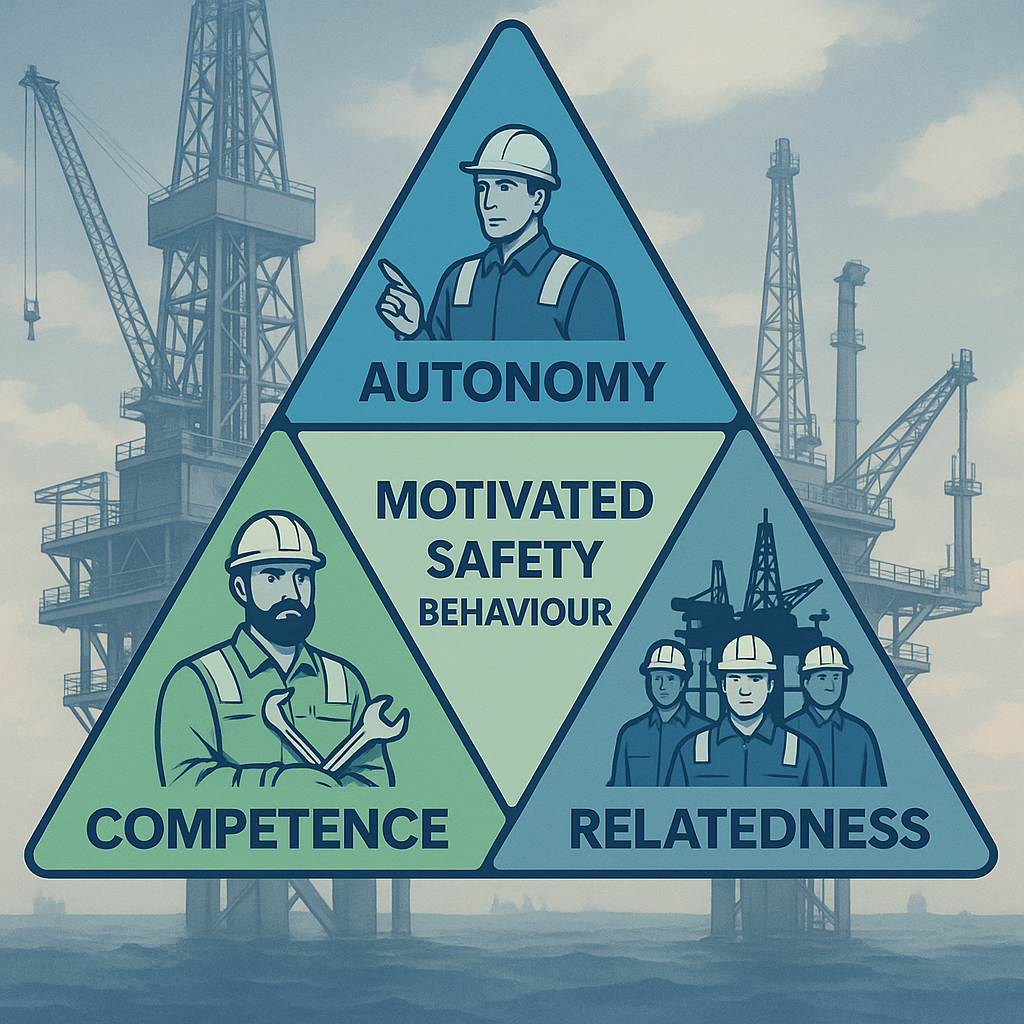When it comes to understanding human behaviour and emotions, psychology has been a powerful tool for many years. However, traditional psychology focused primarily on the negative aspects of human experience, such as mental illness and trauma.
It wasn't until the emergence of positive psychology that researchers began to examine the positive aspects of human experience, such as happiness, well-being, and fulfilment. The next wave of safety innovations in construction safety may well come from this area.
Positive Psychology’s origins
Positive psychology emerged as a field of study in the late 1990s, led by Martin Seligman and Mihaly Csikszentmihalyi. Seligman, a renowned psychologist, wanted to shift the focus of psychology from pathology to well-being, believing that the field should focus on human strengths and virtues rather than just treating mental illness. He was also interested in finding ways to help people live fulfilling lives.

Image source: https://growingstrongminds.com/positive-psychology-in-schools/
Positive psychology is based on the idea that individuals have the ability to cultivate positive emotions, thoughts, and behaviours, which can lead to increased happiness and well-being. The field explores topics such as gratitude, resilience, optimism, and self-efficacy, and looks at how these factors can contribute to a person's overall sense of well-being.
Since its emergence, positive psychology has been applied to various fields, including education, healthcare, and business. The construction industry is no exception. In fact, the principles of positive psychology can be applied to construction sites in a variety of ways to improve worker satisfaction, safety, and productivity.

Harnessing Gratitude
One of the key principles of positive psychology is gratitude. Gratitude is the practice of acknowledging and appreciating the good things in our lives. In the construction industry, workers can benefit from cultivating a sense of gratitude for their jobs and the work they do. This can be achieved through regular recognition and appreciation of their hard work and contributions to the project.
Employers can show their gratitude by acknowledging workers who go above and beyond, providing opportunities for professional development and growth, and offering bonuses or other incentives for exceptional performance.
Gratitude can create a positive work environment where workers feel valued and motivated, which can ultimately lead to increased productivity and job satisfaction.
A platform like Scratchie can turn gratitude from being just a nice yet toothless sentiment into something concrete. Scratchie enables immediate, on the spot rewards and recognition. This kick-starts the process through positive conversations.

Boosting Resilience
Another key principle of positive psychology is resilience. Resilience is the ability to recover from setbacks and bounce back from adversity. In the construction industry, workers are often faced with challenging and dangerous situations, and resilience is a crucial trait for success.

Employers can help cultivate resilience in their workers by providing resources for mental and physical health, encouraging breaks and self-care, and offering support and encouragement during difficult times. By fostering resilience, workers can feel more confident and capable of handling the challenges of the job, leading to increased safety and productivity.
Weaponising Optimism
Optimism is another key principle of positive psychology. Optimism is the belief that positive outcomes are possible and that one's actions can lead to those outcomes. In the construction industry, optimism can be a powerful tool for increasing worker motivation and productivity.

Employers can cultivate optimism by providing clear goals and objectives for the project, celebrating successes and milestones, and offering opportunities for workers to take ownership of their work. By fostering a sense of optimism and possibility, workers can feel more motivated and invested in the success of the project, leading to increased productivity and job satisfaction.
Self-efficacy is underrated
Finally, self-efficacy is a crucial component of positive psychology. Self-efficacy is the belief in one's ability to successfully complete tasks and achieve goals. In the construction industry, workers who feel confident and capable are more likely to perform well and take ownership of their work.

Employers can cultivate self-efficacy by providing training and development opportunities, offering feedback and recognition for a job well done, and encouraging workers to take on new challenges and responsibilities. By fostering a sense of self-efficacy, workers can feel more confident and capable of handling the demands of the job, leading to increased productivity and job satisfaction.
Conclusion
In conclusion, positive psychology has revolutionised the field of psychology by shifting the focus from pathology to well-being. The principles of gratitude, resilience, optimism, and self-efficacy are being applied to various fields, including the construction industry, with positive results.
By cultivating gratitude, resilience, optimism, and self-efficacy in construction workers, employers can create a positive work environment where workers feel valued, motivated, and invested in the success of the project. This can lead to increased safety, productivity, and job satisfaction.
Overall, the principles of positive psychology provide a powerful tool for improving the construction industry and creating a more positive and fulfilling work environment for all involved. If you’d like to learn more about tools you can use to explore positive psychology, click here to arrange a demo call with one of our team.










.svg)
